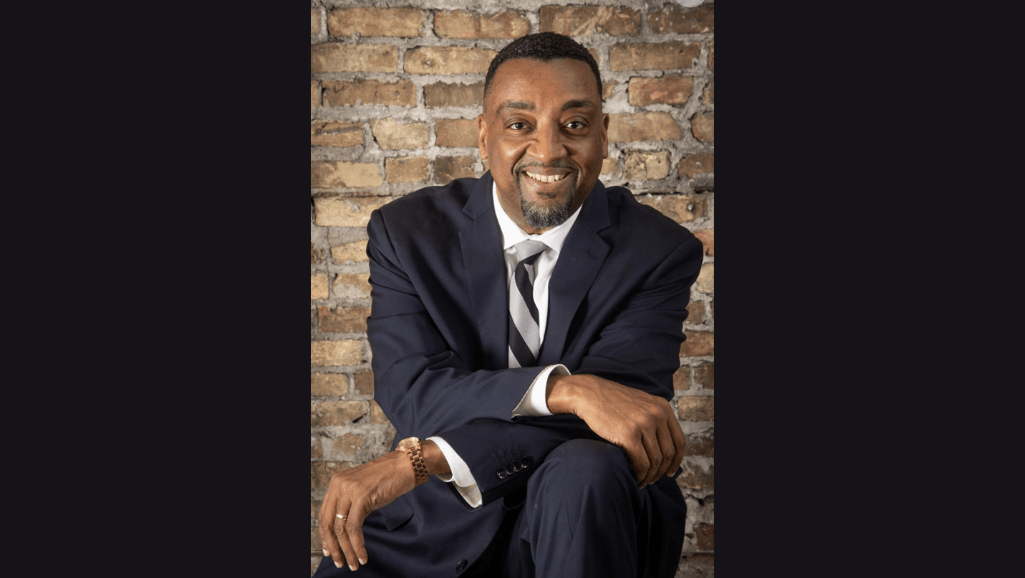Steve Epting, MS, Director, Alive Faith Network, Pastor, Hope Community Church
Where are you from?
I’m from Chicago, born and bred. I grew up in Woodlawn and had some connections with North Lawndale. I’ve been in Austin 19 years now.
What led you to your current organization?
I’ve pastored at Hope for 19 years this year. I’ve been with Rush for 10 years now as a consultant. I’m not someone who moves a lot, so I’ve been committed to this area. I don’t think you learn about a community overnight, it takes time to learn about people, it takes time to learn about community.
I’ve always wanted to help people, but I never knew how to help, only to be there. As a pastor, my philosophy is to be present. My being present doesn’t answer every issue that I’m concerned with, but it does help us get to a place of purpose. I am not a networker. I don’t like to ask people for anything. What makes me successful is that I’m always asking people, what do they need? That has been my philosophy for 19 years.
Several years ago, several other pastors and I participated in a retreat with Rush. They were talking really over my head with all the medical terminology and research terminology. I’m like, “Why am I here? They don’t need me!” I asked, “I know there are a lot of people who are smarter and more advanced in this area–is there any reason you asked me to come?” One of the professionals said, “You made us believe you really cared about research.” That really resonated for me.
I just wanted to be healthy for myself, and help people around who wanted to do the same. At that time I weighed about 320 pounds. I didn’t get a chance to do a screening when Rush was at our church. [When] I did it, the doctor told me, “Steve, your numbers are really high, you’re going to have to do something about that.” Something resonated with me. I knew if I was going to be someone who’s going to drive healthy living, I have to be an example. After that, I lost 80 or 90 pounds. I used to go to the doctor afraid of what I was going to hear–now I go waiting for the results and wanting to hear what they see. That impact for me has impacted my church—for them to see my journey and take on their own. Today I want people to know why they want to be healthy. Everyone has their own why.
After the retreat, they asked me to participate in some research projects. It became obvious to myself and Dr. Elizabeth Lynch and LaDawne Jenkins: what if we had a network of churches to build great health ministries for the churches? I could see one church focused on one area and another on another, and we use our strengths? How do we get churches to be excited about research? We began to brainstorm [on what is now the Alive Faith Network]. I’ve now been with Rush on several pilot projects: C3EN is one project, I’m also working on hypertension and mobility projects [including Keep It Movin’] in faith organizations.
When you begin to stay in a community, your name becomes known, your trust factor heightens, you’re able to connect with more people who are willing to be part of that research. African American communities have challenges doing research. Rush and I have partnered with more than 50 churches in the last several years, especially in Austin, East Garfield, and North Lawndale.
What do you hope to accomplish as a member of CSAC?
The CSAC is a great opportunity for community-based organizations, researchers, faith-based organizations, and residents to put our minds together to see what is important, what is doable, what are the challenges around what we’re doing, with the hopes of establishing what’s important for everyone. There are a lot of differences in community-based work, faith-based work, research, and residents. How we incorporate all the agendas that come with the work we all do. That’s not an easy fix, it takes time to get to know people and understand individuals. My hope is that the CSAC can present something that makes sense to all the factors involved.
What are some issues in your community you hope to resolve?
There’s a myriad of issues that our community is challenged with. Chronic conditions are important to me–how do we deal with those? I’m hoping we can get to some programming that makes sense and would be effective and people that would champion the program for the long haul, not just a short term fix.
What is something most people would be surprised to know about you?
I like gardening. I am an avid flower and plant person. I take time every day to sit in our garden for my own peace. I get to see things as they develop.



Photos of Steve Epting’s garden courtesy of Steve Epting.

